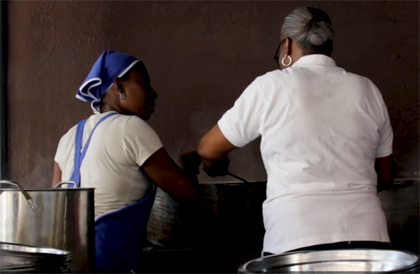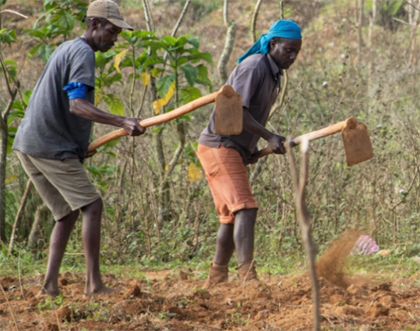School program and other projects combat food insecurity in Haiti

Credits: © World Food Programme (WFP)
Haiti has one of the highest rates of food insecurity of any country in the world—almost half of its population of 10.4 million people is food insecure. This food insecurity is only heightened by the deterioration of the country’s overall security situation as a result of armed criminal gang activity, which limits the flow of goods and people throughout the country. Furthermore, population growth, poor agricultural practices, lack of irrigation canals, land fragmentation and adverse weather conditions are impacting Haitian farmers’ capacity to meet people’s food needs, creating dependence on importation of food staples.
To tackle the significant challenges posed by the security situation in Haiti, Canada is funding projects that support Haitians struggling with food insecurity.

(Credit: World Food Program)
From fields to schools
Among the food insecurity projects for which Canada is the largest contributor is the School Feeding and Local Purchases program, implemented by the World Food Programme (WFP). This project aims to reduce childhood hunger and malnutrition, increase school enrolment rates and stimulate the local economy through the purchase of food from local producers. Despite insecurity and difficult access, WFP has been able to reach remote communities. Furthermore, thanks to this project, 183,000 children across the country benefited from nutritious meals daily during the 2022 to 2023 school year. Feeding these children is an investment in their future, increasing their school attendance and making them less susceptible to the consequences of malnutrition.
According to Fransceska Ernest, a student who benefits from the program, there is always food at her school. “My favourite food is broth,” she says, “The food is delicious.”
To learn more about the School Feeding and Local Purchases Program: Home Grown School Meals: Nourishing Communities and Investing in the Future - Supported by Canada (YouTube)

(Credit: World Food Program)
Fostering smallholder farmers’ resilience
Canada’s support has also helped stimulate the local economy in a sustainable manner. The WFP works with over 70 farm organizations to supply schools with food from small‑scale farmers. In 2022 alone, more than 2,000 tonnes of local products were purchased, injecting over $3 million into the local economy. Local farmer Paul Ilerné says, “Before this project, farmers like me had to go to the market to sell our products. Now, we sell directly to the association. This allows us to make a better profit and sell more products.”
Other Canadian-funded projects to support agriculture in Haiti include the Adaptive and Innovative Solutions for Agri-Food Market Opportunities (MAIS), implemented by Papyrus. Through the projects, corn seeds and fertilizers are purchased for distribution to farmers through official channels, which in turn give maize farmers access to reliable, competitive and sustainable markets. Through Papyrus, the WFP can source directly from these markets. This is the first time in history that the WFP has supported farmers in Haiti to this extent in partnership with another Canadian project.
Another WFP project, Integrated Community Resilience for Improved Food Security in Haiti, improves the resilience and livelihood capacities of Haitian small‑scale farmers and vulnerable communities.
We can make a difference in the lives of Haitian people, which is why Canada is supporting projects such as these.
To learn more about food security: Hunger | FAO | Food and Agriculture Organization of the United Nations
- Date modified: